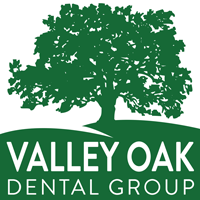Valley Oak Dental Group
Alzheimer’s disease and other forms of dementia have racked up some solemn statistics across the globe. These conditions, which can impair memory, problem-solving skills, and self-care habits, trouble another 10 million people each year. A variety of underlying factors can influence their development, including dental problems.
Whether you care for someone who has dementia or you simply want to reduce your risk for this disease through smart lifestyle changes, you can benefit from learning about the complex relationships between dementia and dental health. Take a moment to study the following frequently asked questions on this important issue.
How Might Dental Problems Affect Dementia Risk?
Medical science has uncovered several new insights regarding the way dental problems may relate to dementia. One study from the National Institute on Aging found associations between the development of Alzheimer’s disease and levels of P. gingivalis, a strain of bacteria that causes periodontal disease.
Researchers note that seniors with periodontal disease showed a higher risk for developing Alzheimer’s disease. They theorize that the body may respond to P. gingivalis by creating beta-amyloid plaques in the brain. These plaques figure prominently in the brains of people who suffer from Alzheimer’s disease.
Tooth loss (which often stems from periodontal disease) and dementia also appear to share some common ground. A separate study found that each lost tooth raised participants’ risk for dementia by an additional 1.1 percent. Each new case of tooth loss also boosted their risk for general cognitive impairment by 1.4 percent.
How Does Dementia Threaten Oral Wellness?
Just as oral disease can influence dementia, dementia can play a role in the development of oral diseases. This association occurs indirectly, stemming from problems that individuals with dementia may have maintaining a proper daily oral hygiene regimen.
Individuals with dementia may display changes in overall self-care behaviors, from forgetting to shave to neglecting their brushing and flossing routines. The neglect can allow plaque and bacteria to accumulate, resulting in periodontal disease and tooth loss. Dementia can also cause manual coordination issues that complicate dental hygiene efforts.
Seniors with dementia may use dentures to help them compensate for many years of tooth loss. These appliances must also receive regular cleaning and maintenance. A senior who has dementia may neglect denture cleaning and fit adjustments, resulting in periodontal disease, infections, and mouth sores.
What Dental Practices Can You Adopt to Reduce Your Overall Dementia Risk?
While you can’t necessarily eliminate all the factors that play into your lifetime dementia risk, you can take steps to reduce the risks created by poor dental care. Maintain your regular schedule of dental checkups and cleanings, following your dentist’s self-care and treatment recommendations to control dental problems early.
Regular brushing and flossing may not sound like a revolutionary technique for reducing your dementia risk, but it can definitely help you reduce the levels of harmful bacteria in your mouth. Make a point of flossing every day and brushing your teeth at least twice a day. Professional cleanings can remove any plaque you can’t eliminate.
If you wear dentures, follow your dentist’s instructions for keeping them clean and storing them correctly. Get them relined or replaced as needed to prevent fit problems that might cause trouble.
How Can You Help Loved Ones With Dementia Care for Their Teeth and Gums?
If you serve as the caregiver for a loved one with dementia, you may already understand the need to help this individual get through activities of daily living, including personal hygiene tasks. You can help them look after their dental and oral health by making sure they follow best practices for brushing, flossing, and denture care.
The types of assistance you may need to provide will vary according to the dementia’s specific effects on your loved one. In some cases, a person with dementia may have forgotten the individual steps involved in everyday dental hygiene. You may need to show them how to brush and floss, using yourself as an example.
An individual who knows what to do but finds the specific actions difficult may benefit from some modification to their dental hygiene tools. For instance, they may find flossing sticks easier and more comfortable to use than traditional dental floss, or they may need to switch from an electric toothbrush to a simpler manual toothbrush.
If your loved ones can’t perform everyday dental hygiene tasks anymore, you can step in and administer that care yourself. Try a few different types of toothbrushes and flossing instruments until you find the combination that works best for both of you. Remember to clean your loved one’s dentures and schedule dental appointments.
Valley Oak Dental Group can help you stay on top of your dental and oral wellness as you work to keep debilitating issues such as dementia at bay. We can also help your loved one who suffers from dementia to enjoy a higher standard of dental health.
Contact our office today to schedule an appointment.
Share Post
Search Post
Recent Posts








